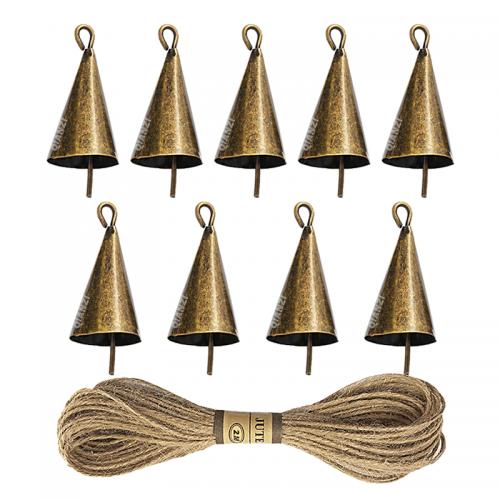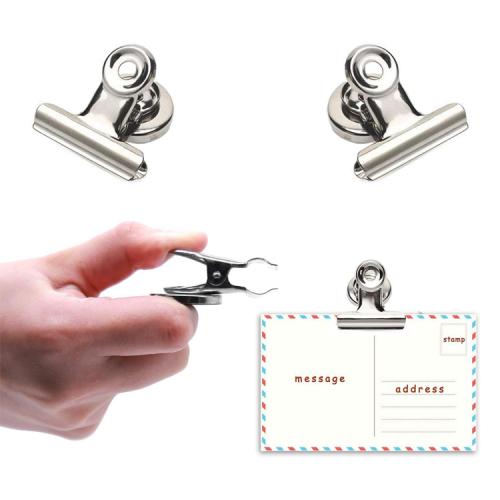What is a bear bell?Or do they just make you an annoying hiker?
A bear bell is simply a small bell with a loop that sounds a lot like a sleigh bell and attaches to your backpack so when you walk, it jingles. The premise of bear bells is that the best way to deal with bears in the wild is to avoid encounters with them altogether. By taking advantage of bears’ natural shyness, you walk carrying a bell and its sound alerts them to your presence. More often than not, a bear attacks because you startle it, or accidentally make it feel threatened, but when it hears you coming a long way off, it ambles out of the way and any unwanted interaction is avoided.
On the surface of it, the idea of bear bells makes a lot of sense. As with most wildlife, like mountain lions and moose, the key to surviving an encounter is generally to avoid it in the first place, and most such animals prefer to give us humans a wide berth than square off in a hostile confrontation in the woods. In fact, it seems downright polite to let them know when you’re planning to be clumping through their territory in your hiking boots so that they can move along. But it didn’t take us long to discover that research on the effectiveness of bear bells is patchy at best, while some hikers argue against using them for other reasons.
In looking for arguments for using a bear bell, we stumbled upon a 1999 master’s thesis by a University of Calgary student, which cites earlier research that found that when hikers wore bells, bears that had been resting moved away from the approaching hiker in 67% of observed cases. Meanwhile when hikers weren’t using bells, bears stood their ground in 26% of instances. This study is quite often cited as an argument for using bear bells, but if you look a little closer at those numbers, they actually reveal for hikers that weren’t using bells, in 74% of cases the bear also moved away. In other words, the resting bears were more likely to move away from hikers who weren’t carrying bells than those who were.
In observed cases where the bear had been travelling towards the hiker, the argument against bear bells is further strengthened, with bears changing direction 50% of the time when the hiker was wearing a bell, but 79% of the time when they weren’t. So it’s all looking quite good for the non-bell wearers. But if you’re just about to chuck your bear bell in the bin, hang on a sec, because the study also found that no hikers carrying bear bells were ever charged by bears, whereas in hikers without bells, 14% were charged, which sounds like 14% more than is comfortable. That figure might be enough to have you reattaching your bell right now.

The argument against bear bells seemed to pick up some steam a couple of years ago, when a new study emerged by a US Geological Survey scientist that is also often cited in discussions about bear bells, but seems to have disappeared from the internet. Articles about the study at the time described the scientist, named Tom Smith, jingling bells at bears in Katmai National Park and concluding that they didn’t respond at all. They did, however, respond to other sounds of an encroaching human, such as the cracking sound of a twig breaking. Without the original study, it’s hard to draw firm conclusions, but is it possible that in the earlier study where bears moved away from hikers carrying bells, it was actually because they were making other noises that alerted the bears to their presence?
Though we don’t have a definitive answer on that, we did decide to see what the US National Parks Service has to say about all this, since it manages the territory of thousands of bears. According to their official bear safety information, bears probably won’t hear your bell until you’re too close to them for it to help, and other noise-making activities like yelling and clapping are more effective.

So what can we gather from all this? There isn’t any conclusive evidence that bells are effective at repelling bears, nor is there any that they really work, yet. The arguments against bear bells are that they can be annoying for other hikers who are out trying to enjoy some peace and solitude on the trail, and perhaps more importantly, they might disturb other wildlife and scare off animals such as birds that you might quite like to see. But they also might reduce your chances of being charged by a bear by 100%. It’s hard to say.
If all this ambiguity is leaving you lukewarm about jingling your way up the trail much to the chagrin of others, you can definitely use other deterrents such as a bear horn and hiking with friends where you’re generally going to be chatting and making more noise than if you’re hiking alone. Learn more in our article on what to do if you encounter a bear and remember to keep your eyes and ears open whenever you’re hiking in bear country.
Join us and get detail information,technical parameter and new products etc.
- Contact Us
 [email protected]
[email protected] weisitachina
weisitachina +8613922548763
+8613922548763

























